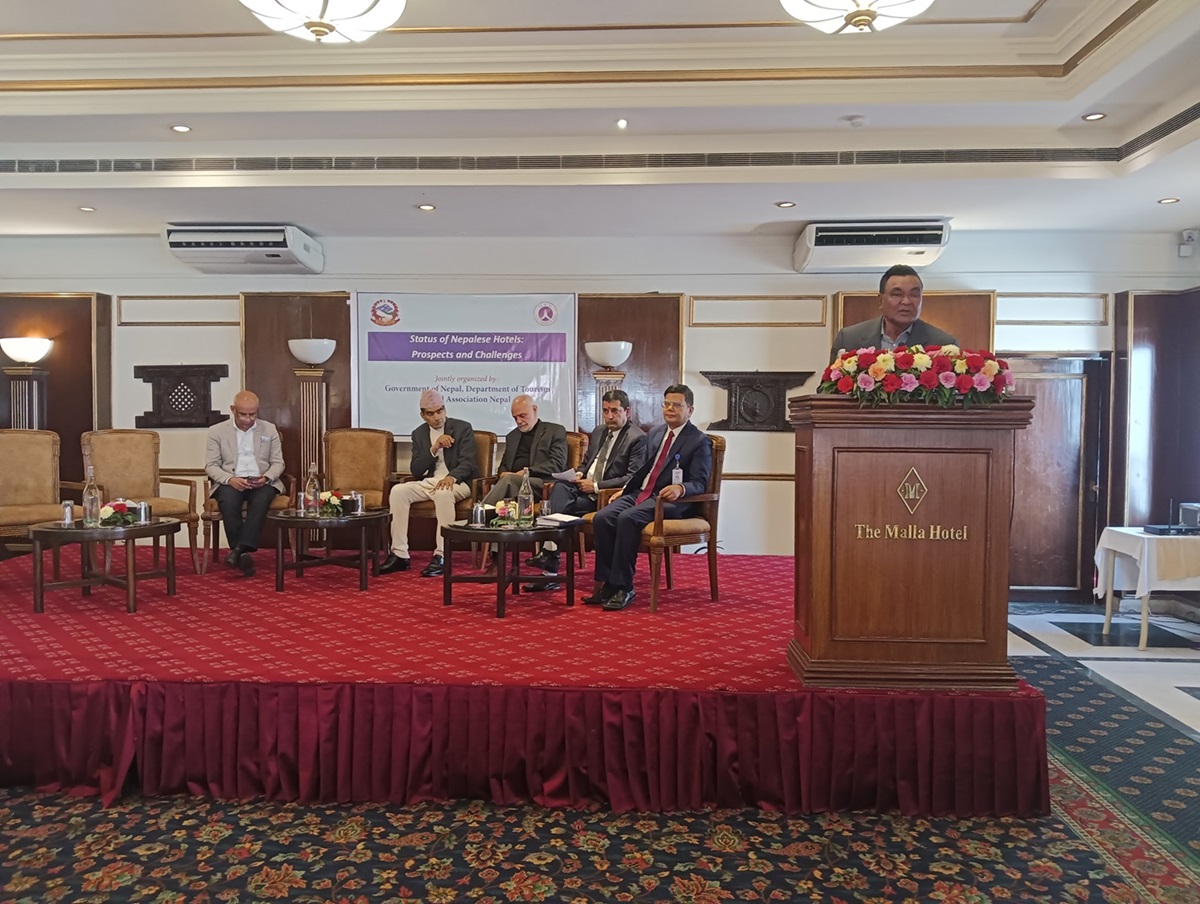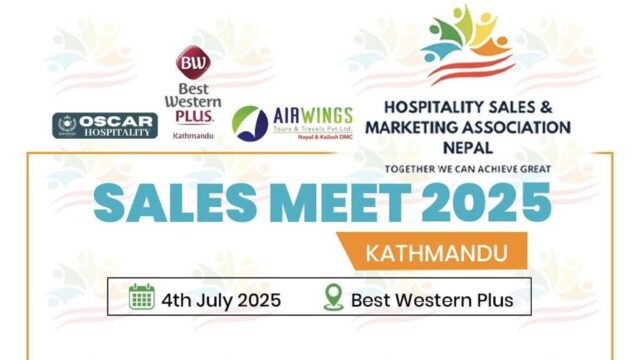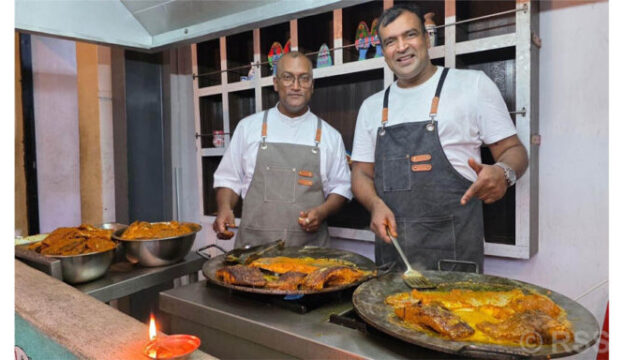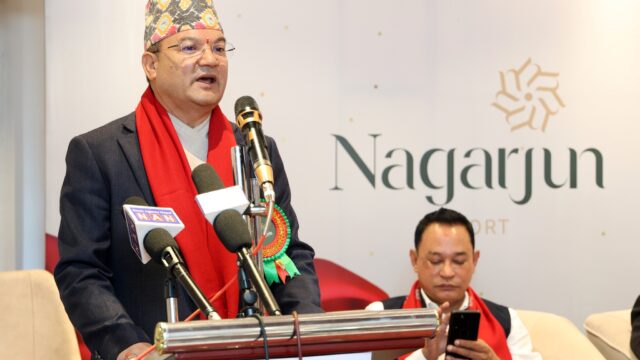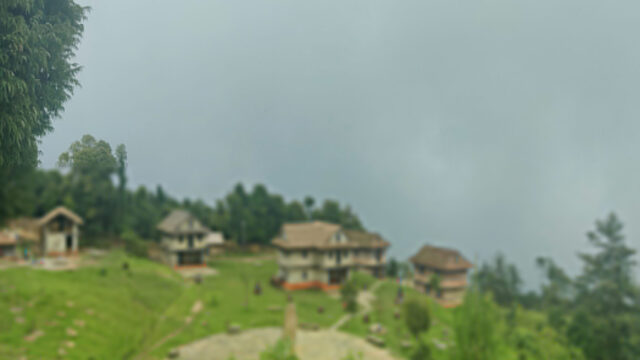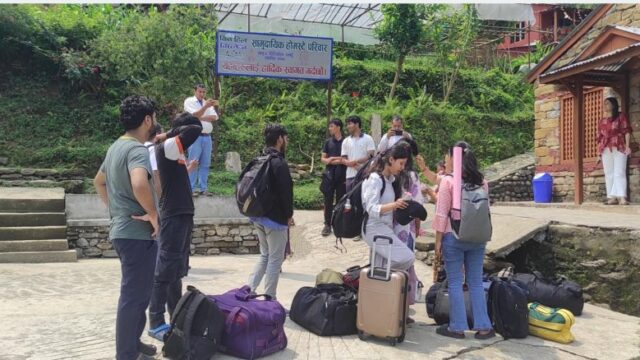On the occasion of the workshop titled “Status of Nepalese Hotels: Prospects and Challenges,” organized by the Department of Tourism and the Hotel Association of Nepal (HAN), key industry leaders and stakeholders gathered to discuss the pressing issues facing Nepal’s hotels and tourism sector. Held in Kathmandu, the event attracted a large number of participants, including hotel professionals, government officials, and experts, all of whom were keen to explore solutions to improve the sector’s performance. The workshop highlighted critical challenges and opportunities in Nepal’s hospitality sector, offering a platform for open dialogue and collaborative problem-solving,” said Mr. Sajan Shakya, HAN Secretary.
The workshop, which brought together prominent figures such as Hotel Association Nepal’s President Binayak Shah, Department of Tourism Director General Narayan Prasad Regmi, former Tourism Secretary Deependra Purush Dhakal, Tourism Secretary Ganesh Prasad Pandey, and various other industry specialists, focused on the imbalance between the number of hotel rooms available and the actual tourist arrivals in the country. According to Mr. Shakya, this disparity raises urgent concerns about sustainability in the hospitality sector.
Binayak Shah, President of HAN, pointed out the stark contrast between the capacity of hotels in Nepal and the actual number of tourists arriving. “Despite the ability to accommodate 3 to 3.5 million tourists annually, the actual number of arrivals remains limited to around 1 to 1.5 million,” Shah noted. This significant imbalance, he added, poses a serious risk to the future of Nepal’s hotel industry, which is heavily dependent on foreign tourist traffic. He also raised concerns about the high airfare, declining service prices, and reduced bookings during the December to January peak period, all of which are exacerbating the struggles of the hotel sector.
A particular issue discussed at length during the workshop was the problem of the Maximum Retail Price (MRP) and quality standards for hotel services. Shah explained that there are ongoing challenges in setting and enforcing MRP policies in the hotel industry, particularly with the rising costs of operation and the market forces that affect pricing flexibility. He suggested that the government needs to reconsider these pricing regulations to ensure the sustainability of the hotel industry.
Tourism experts also delved into other systemic challenges faced by the hotel industry. Former Tourism Secretary Deependra Purush Dhakal emphasized the importance of focusing on short-term targeted plans in tourism policy, rather than solely relying on long-term strategies. He pointed out the critical need for improvements in the use of Bhairahawa Airport and the need for better infrastructure, including internal road networks and air connectivity, to enhance the tourist experience. Mr. Shakya supported this view, emphasizing that infrastructure and connectivity improvements are critical for the sector’s growth.
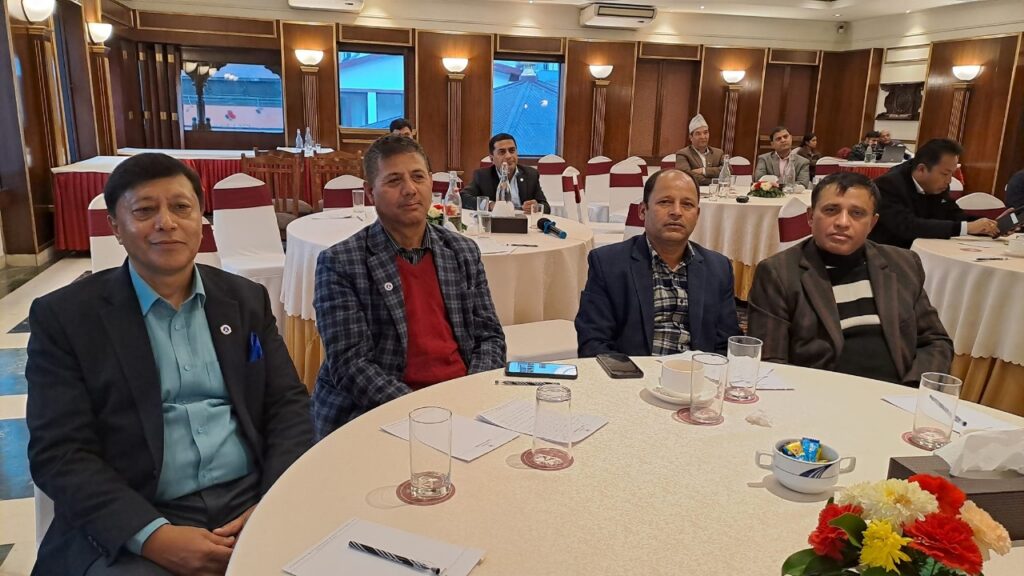
Addressing the growing concern of insufficient skilled human resources, Dhakal remarked that the shortage of skilled labor, particularly in the wake of the COVID-19 pandemic, has placed a significant strain on the hospitality sector. This shortage, compounded by the increased competition for talent, has made it challenging for hotels to maintain service quality at the desired levels.
Meanwhile, the Department of Tourism’s Director General, Narayan Prasad Regmi, shared insights into potential solutions, stressing the importance of collaboration between the public and private sectors to address these challenges. Regmi emphasized that coordinated efforts could pave the way for resolving the various issues currently plaguing the hotel industry, from MRP concerns to quality standards and regulations.
Tourism Secretary Ganesh Prasad Pandey added that while increasing the number of hotels could help accommodate more tourists, it is equally important to focus on improving the overall service quality and enhancing the guest experience. He pointed out that enhancing the “length of stay” for tourists should be prioritized over simply building new hotels.
Another critical discussion point was the regulation of accommodations and the monitoring of illegal and unregistered hotels. The hotel industry is currently facing issues related to unregulated operations in places like monasteries in Lumbini, unregistered homestays in core city areas, and unlicensed B&Bs. These types of operations not only create a lack of accountability but also dilute the overall standard of Nepal’s hospitality offerings. The workshop participants called for stricter monitoring and regulation to address these challenges.
As for the infrastructure and connectivity issues, several experts, including Director General of Immigration Govind Prasad Rijal, underscored the importance of creating a more tourist-friendly environment. He highlighted the need for better-managed entry and exit procedures at airports and border points, ensuring they are both efficient and welcoming for international visitors. He also discussed the necessity for digital systems to streamline these processes.
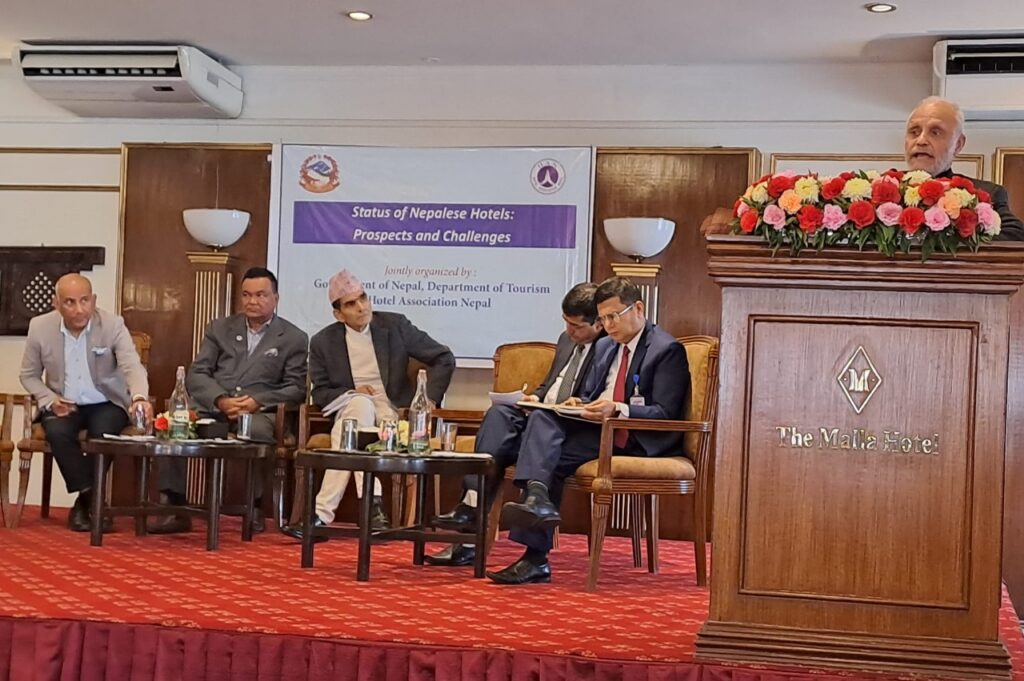
The absence of an integrated one-stop service delivery system for tourists in Nepal, especially for services like entry tickets for national parks and heritage sites, was also discussed. Tourism Board CEO Deepak Raj Joshi expressed concerns about how Nepal’s outdated infrastructure and lack of digital tools have compromised the tourist experience. He suggested that implementing e-visa and e-payment systems would significantly improve service delivery and create a more seamless experience for tourists.
The high electricity tariffs imposed on hotels were also a significant concern raised by hotel owners. Binayak Shah, along with other industry stakeholders, called on the government to recognize the hospitality sector as a priority industry, allowing it to receive the same electricity tariffs as other priority sectors such as manufacturing. Shah also highlighted the importance of introducing Time-of-Day (ToD) tariffs, which would help hotels manage their energy consumption more efficiently.
In terms of banking and finance, the industry is eagerly awaiting special tourism support policies from the central bank, which would provide much-needed relief to the sector. The inclusion of tourism-specific guidelines in the monetary policy could play a crucial role in facilitating business operations in the hospitality sector.
Participants also raised concerns about the increasing gap in tourism infrastructure development in different provinces. There was a call for greater inclusivity in tourism development, including the standardization of hotels, better destination development, and improved collaboration between the federal, provincial, and local governments. This would ensure a more integrated and sustainable tourism development strategy across Nepal.
The workshop concluded with discussions on Nepal’s ongoing tourism promotional efforts, particularly the announcement of Visit Nepal Year 2025 by China. The promotion and branding of Nepal as a tourism destination were seen as pivotal in attracting more international tourists, alongside efforts to enhance Nepal’s airport infrastructure and connectivity with global markets.
While Nepal’s hotel and tourism industry faces various challenges, such as infrastructure gaps, regulatory barriers, and service quality concerns, there is optimism that with collaborative efforts and strategic reforms, these obstacles can be overcome. By creating an environment conducive to the growth of both the hotel sector and the overall tourism experience, Nepal can position itself for sustainable growth and maintain its appeal as a competitive destination for global travelers.
In this context, the urgent implementation of e-visa and e-payment systems is essential, and it has also been announced that an industry facilitation unit will be established at the Nepal Tourism Board to drive business promotion. This report is based on insights obtained from an exclusive discussion with Mr. Sajan Shakya, Secretary of HAN, who provided a comprehensive overview of the workshop’s proceedings. His insights underscore the collaborative efforts required to overcome challenges and position Nepal as a competitive global tourism destination.
